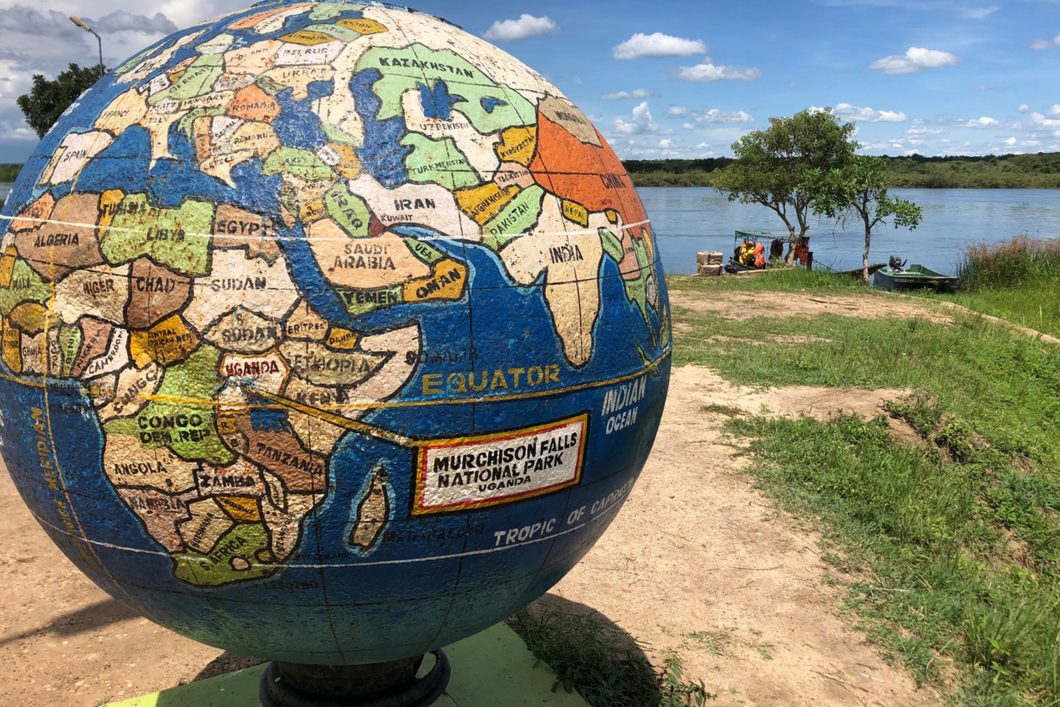What a blessing it is to study a discipline that can have such an impact on other people’s quality of life. I knew about the wonderful opportunities in our American health care and educational systems but never truly realized, until this past summer, that there’s a great need for speech-language pathologists and audiologists abroad. If you have a passion for travel like me, I strongly encourage you to consider international opportunities in CSD!
My Travel to Scotland and Ireland
As a freshman, I entered Auburn University with no idea what I was going to study. I’m so happy I discovered the CSD program, which sparked my passion for helping children and adults communicate to the best of their abilities. After enrolling in this program, I participated in my school’s speech-language pathology study-abroad trip to Scotland and Ireland.
This incredible trip allowed me to interact with Scottish and Irish speech therapy students. I learned from them about their education, fascinating research, and innovative therapy methods and techniques—not to mention, I saw some beautiful scenery and experienced such a lively culture!
The trip definitely ignited my interest in becoming certified in another country through the Mutual Recognition Agreement. This agreement—signed by the associations for America, Canada, Ireland, the United Kingdom, Australia, and New Zealand—recognizes your eligibility to work in another English-speaking country upon completion of specific certifications, exams, and so forth, provided you have full membership in your own country. My dream job is to be a traveling speech-language pathologist (SLP), so I was excited to learn about the possibility of traveling with my career, both domestically and internationally.
Continuing My Travels to Uganda
Last fall, at the 2018 ASHA Convention in Boston, a colorful booth caught my eye in the Exhibit Hall. The booth was promoting an organization called Hope Speaks, which provides speech therapy services to people with disabilities in Uganda. Toward the end of my senior year (last spring), I applied to be a summer volunteer for Hope Speaks and raised support to travel to Kampala, Uganda. In third world countries, poverty, malnutrition, and disability go hand in hand. By loving and caring for children with special needs, the Hope Speaks organization helps give around 900 kids and their mothers a voice.
Before I left, I was unsure of what speech therapy would look like in a place with immense poverty and serious medical need. While in Uganda, I spent my days helping with therapy at three schools, an orphanage, a private clinic, and two outreach clinics in some of the poorest areas of the city. We mainly saw children with cerebral palsy, autism, Down syndrome, and hydrocephalus. We worked to help these children make eye contact, follow directions, swallow their food without choking, use verbal and sign language to express wants and needs, and become exposed to literacy. Even if we didn’t see immediate results from therapy, it was critical to engage with each child and mother, giving them the value they deserve regardless of whether or not they achieved our desired response during the session. The ultimate goal of each free therapy session was to create a bubble of peace amidst the lives of these marginalized people.
In a society that blames mothers for their child’s disability and believes that special needs are a contagious curse, mothers must simultaneously fight for their child and fight against the ridicule of people around them—often by themselves because their husbands have deserted them. I was amazed at the strength and dedication of these moms to choose to support their children with special needs. One of the most powerful aspects of my trip was participating in advocacy events and education regarding disabilities. By answering mothers’ questions about what speech therapists do and about specific disabilities, I provided them with empowering and useful knowledge. Although I began my trip wondering how speech therapy could have a global impact, I left with the resolve that, in places like Kampala, speech therapy is saving lives.
I’m so thankful for this opportunity which allowed me to fuel my passion for my future profession. I’m thankful for the universality of a smile and a hug—and for the healing power of positive human touch. I am thankful for the welcoming spirit of the connected local community, the new words I learned in the Luganda language, and for the flexible, relationship-centered “Ugandan time.” I’m thankful for the fellowship I experienced with a team of like-minded people who I believe will be lifelong friends.
Like many who visit and fall in love with Africa, I believe I’ve left a piece of my heart on that beautiful continent. I hope to return to Uganda one day to serve my welcoming new friends. Although some may argue that short-term missions or volunteering is not a sustainable way to make a difference, I’d argue you don’t need a summer—you just need a moment with a child to make a lasting impact on a life. With 700 Ugandan children on the waiting list to be seen for speech therapy, the need is huge.
The Impact We Can Make Abroad
Three years ago, when I declared a major in speech-language pathology, I had a narrow perspective of what that career might look like—I pictured simply helping children say certain sounds. Little did I know that my studies could have an impact in far-away places, like Uganda.
Whether you study abroad, go on a short-term volunteer mission, or move to another country altogether, you can absolutely use your gifts to change people’s lives all over the world. And I promise that, through the beauty of travel and new perspectives, something most unexpected will occur: Your life will be changed, as well.


Is there a way to get into contact with Lauren Dunn to ask about her time in Scotland? I am an SLP and have been looking into traveling and working in my field in Scotland. Any tips and information would be so greatly appreciated!